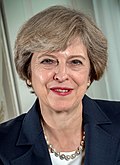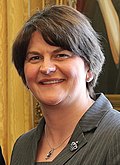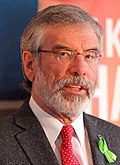 Global Information
Global Information2017 United Kingdom general election information
| |||||||||||||||||||||||||||||||||||||||||||||||||||||||||||||||||||||||||||||||||||||||||||||
All 650 seats in the House of Commons 326[n 1] seats needed for a majority | |||||||||||||||||||||||||||||||||||||||||||||||||||||||||||||||||||||||||||||||||||||||||||||
|---|---|---|---|---|---|---|---|---|---|---|---|---|---|---|---|---|---|---|---|---|---|---|---|---|---|---|---|---|---|---|---|---|---|---|---|---|---|---|---|---|---|---|---|---|---|---|---|---|---|---|---|---|---|---|---|---|---|---|---|---|---|---|---|---|---|---|---|---|---|---|---|---|---|---|---|---|---|---|---|---|---|---|---|---|---|---|---|---|---|---|---|---|---|
| Opinion polls | |||||||||||||||||||||||||||||||||||||||||||||||||||||||||||||||||||||||||||||||||||||||||||||
| Registered | 46,836,533 | ||||||||||||||||||||||||||||||||||||||||||||||||||||||||||||||||||||||||||||||||||||||||||||
| Turnout | 68.8% ( | ||||||||||||||||||||||||||||||||||||||||||||||||||||||||||||||||||||||||||||||||||||||||||||
| |||||||||||||||||||||||||||||||||||||||||||||||||||||||||||||||||||||||||||||||||||||||||||||
 A map of UK parliamentary constituencies, with each winner's constituency, percentage of victory. * Figure does not include the Speaker of the House of Commons John Bercow, who was included in the Conservative seat total by some media outlets. | |||||||||||||||||||||||||||||||||||||||||||||||||||||||||||||||||||||||||||||||||||||||||||||
 Composition of the House of Commons after the election | |||||||||||||||||||||||||||||||||||||||||||||||||||||||||||||||||||||||||||||||||||||||||||||
| |||||||||||||||||||||||||||||||||||||||||||||||||||||||||||||||||||||||||||||||||||||||||||||
|
|
|
|
The 2017 United Kingdom general election was held on Thursday 8 June 2017, two years after the previous general election in 2015; it was the first since 1992 to be held on a day that did not coincide with any local elections.[2] The governing Conservative Party remained the largest single party in the House of Commons but lost its small overall majority, resulting in the formation of a Conservative minority government with a confidence and supply agreement with the Democratic Unionist Party (DUP) of Northern Ireland.[3]
The Conservative Party, which had governed as a senior coalition partner from 2010 and as a single-party majority government from 2015, was led by Theresa May as Prime Minister of the United Kingdom. It was defending a working majority of 17 seats against the Labour Party, the official opposition led by Jeremy Corbyn. It was the first general election to be contested by either May or Corbyn as party leader; May had succeeded David Cameron following his resignation as prime minister the previous summer, while Corbyn had succeeded Ed Miliband after he resigned following Labour's failure to win the general election two years earlier.
Under the Fixed-term Parliaments Act 2011 an election had not been due until May 2020, but Prime Minister May's call for a snap election was ratified by the necessary two-thirds vote in the House of Commons on 19 April 2017. May said that she hoped to secure a larger majority to "strengthen [her] hand" in the forthcoming Brexit negotiations.[4]
Opinion polls had consistently shown strong leads for the Conservatives over Labour. From a 21-point lead, the Conservatives' lead began to diminish in the final weeks of the campaign. The Conservative Party returned 317 MPs—a net loss of 13 seats relative to 2015—despite winning 42.4% of the vote (its highest share of the vote since 1983), whereas the Labour Party made a net gain of 30 seats with 40.0% (its highest vote share since 2001 and its highest increase in vote share between two general elections since 1945). It was the first election since 1997 in which the Tories made a net loss of seats or Labour a net gain of seats. The election had the closest result between the two major parties since February 1974 and resulted in their highest combined vote share since 1970. The Scottish National Party (SNP) and the Liberal Democrats, the third- and fourth-largest parties, both lost vote share; media coverage characterised the result as a return to two-party politics.[5] The SNP, which had won 56 of the 59 Scottish seats at the previous general election in 2015, lost 21. The Liberal Democrats made a net gain of four seats. UKIP, the third-largest party in 2015 by number of votes, saw its share of the vote reduced from 12.6% to 1.8% and lost its only seat.
In Wales, Plaid Cymru gained one seat, giving it a total of four seats. The Green Party retained its sole seat, but its share of the vote declined. In Northern Ireland, the DUP won 10 seats, Sinn Féin won seven, and Independent Unionist Sylvia Hermon retained her seat. The Social Democratic and Labour Party (SDLP) and Ulster Unionist Party (UUP) lost all their seats.
Negotiation positions following the UK's invocation of Article 50 of the Treaty on European Union in March 2017 to leave the EU were expected to feature significantly in the campaign, but did not as domestic issues took precedence instead. The campaign was interrupted by two major terrorist attacks: Manchester and London Bridge; thus, national security became a prominent issue in its final weeks.
The outcome of the election would have significant implications for the Brexit negotiations, and led the Parliament of the United Kingdom into a period of protracted deadlock which would eventually bring about another general election two and a half years later.
Cite error: There are <ref group=n> tags on this page, but the references will not show without a {{reflist|group=n}} template (see the help page).
- ^ "General Election 2017: full results and analysis". UK Parliament (second ed.). 29 January 2019. Retrieved 6 April 2022.
- ^ Boyle, Danny; Maidment, Jack (18 April 2017). "Theresa May announces snap general election on June 8 to 'make a success of Brexit'". The Telegraph. ISSN 0307-1235. Retrieved 25 February 2018.
- ^ "Confidence and Supply Agreement between the Conservative Party and the DUP" (PDF). assets.publishing.service.gov.uk.
- ^ McAuley, James (9 June 2017). "After shocking British vote result, Europe ponders fate of Brexit negotiations". The Washington Post. Retrieved 29 December 2019.
- ^ Whittam Smith, Andreas (9 June 2017). "After three decades of splintering, two-party politics is back – sort of". The Independent. Archived from the original on 1 May 2022. Retrieved 6 April 2022.





